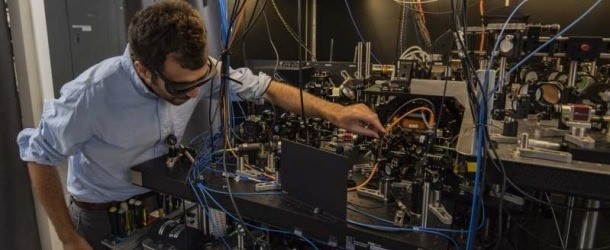JILA Demos Atomic clock with Strong Signals & High Stability

(Phys.org) JILA is a joint research and training institute operated by the National Institute of Standards and Technology (NIST) and the University of Colorado Boulder.
JILA physicists have demonstrated a novel atomic clock design that combines near-continuous operation with strong signals and high stability, features not previously found together in a single type of next-generation atomic clock. The new clock, which uses laser “tweezers” to trap, control and isolate the atoms, also offers unique possibilities for enhancing clock performance using quantum physics. Kaufman has previously used optical tweezers to “entangle” two atoms, a quantum phenomenon that links their properties even at a distance. Special quantum states like entanglement can improve measurement sensitivity and thus may enhance clock precision.
The research team now plans to build a larger clock and formally evaluate its performance. Specifically, the researchers plan to use more tweezers and atoms, with a target of about 150 atoms. Kaufman also plans to add entanglement, which could improve clock sensitivity and performance and, in a separate application, perhaps provide a new platform for quantum computing and simulation.



















